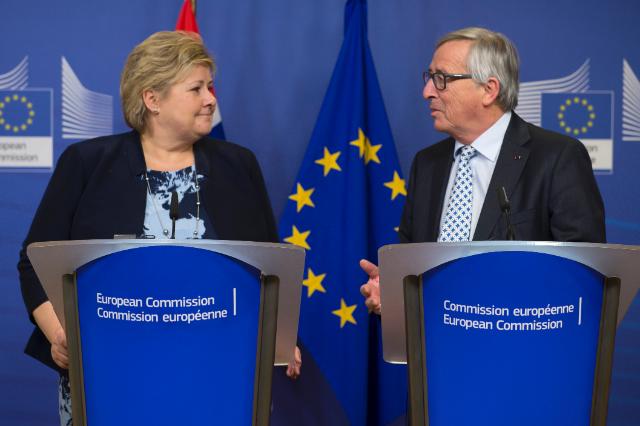
Chief among the reasons that the ‘Leave’ campaign cites for its campaign to convince British voters to leave the European Union is sovereignty. ![]()
![]()
Here’s Ambrose-Evans Prichard, with a well-written and thoughtful essay endorsing Brexit last week in The Telegraph:
Stripped of distractions, it comes down to an elemental choice: whether to restore the full self-government of this nation, or to continue living under a higher supranational regime, ruled by a European Council that we do not elect in any meaningful sense, and that the British people can never remove, even when it persists in error.
For some proponents of the ‘Leave’ campaign, sovereignty matters so much that the warnings of a significant short-term disruption to the British economy simply do not matter. In the long run, Brexit’s benefits will come, supporters hope, from the ability of future British policymakers to enact laws and regulations unhindered by the grinding bureaucracy of Brussels and Strasbourg.
That Brexit will lead to such full-throated British sovereignty is not so clear — at least if the United Kingdom wants to leave the European Union while still retaining access to the single market, one of the world’s most integrated free-trade zones.
Britain, contemplating divorce, already has a ‘separation’ with Europe
It’s not always easy to sort the alphabet soup within the European Union, let alone the rest of Europe that lies outside the technical European Union. But arguably the United Kingdom today enjoys much more freedom than any of the other 27 member-states of the European Union. As British voters consider divorce from Europe, they would do well to consideration that their country is already in something of a separation with Europe.
Today, the United Kingdom is neither a member of the euro currency zone and monetary union, nor (like Ireland) the Schengen zone of free movement. The former means that the United Kingdom still has its own currency, the pound sterling, and the Bank of England controls British monetary policy. The latter means that the United Kingdom retains more control over its borders than even non-EU states like Switzerland and Norway (both party to the Schengen Agreement). Continue reading Why British sovereignty would be even weaker after leaving the European Union